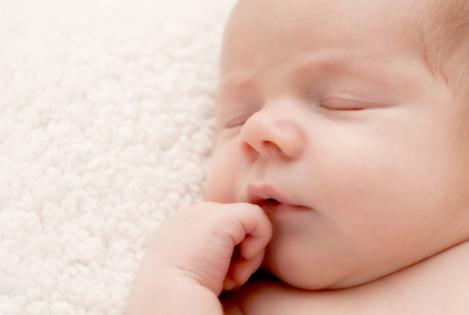Along with all the other nice things mothers do for babies before and after they're born, they share bacteria with them.
Without a generous dose of common bacteria from mother, babies might starve, be unable to process key vitamins and face problems with their immune systems and brain development.
Most healthy adults play host to 100 trillion microbes inside and out. Recent genetic analysis indicates each of us harbours 1,000 species of bacteria that generally benefit rather than harm. The mix seems to be a bit different in each of us.
But babies in the womb start off with a microbial clean slate. Several recent studies have documented how babies acquire needed microbes.
One US study published last June by researchers at Baylor College of Medicine analysed the microbes found in the vaginas of pregnant women and found surprising changes after the first trimester.
There was a shift to a big increase of a few species that are more commonly found in the digestive system, particularly one called Lactobacillus johnsonii, which produces enzymes that digest milk.
As the baby passes through the birth canal, some of the enzyme-producing bacteria coats the infant and some is swallowed, paving the way to digest breast milk, the researchers suggested. Their report appeared in the journal PLOS One.
Spanish researchers reported in early January that DNA sequencing shows that the first breast milk given to babies - called colostrum - contains more than 700 species of bacteria.
Samples of breast milk taken after one and six months of breastfeeding were also diverse, but had more bacteria typically found in the mouth than the gut.
The study, published in the American Journal of Clinical Nutrition, also found that microbial diversity was less in the milk of mothers who were overweight or who put on more weight than recommended during pregnancy.
In addition, the type of delivery affected the diversity of bacteria in the breast milk. Microbes found in the milk of women who underwent planned cesarean section deliveries were different and not as varied as those found in women who had vaginal deliveries. But milk composition of women who started labour and then had an unplanned C-section was similar to that of women who had a natural delivery.
The findings suggest that babies who are born by C-section or who are not breast-fed may be at a disadvantage in getting beneficial microbes.
Researchers at Duke University reported in August that breast milk promotes a different pattern of growth in key gut bacteria than either infant formula or cow's milk. They published their findings in the August issue of Current Nutrition and Food Science.
For the study, the researchers grew bacteria in samples of three brands each of milk and soy based infant formulas, whole cow's milk and donated breast milk. They also tested an antibody that's abundant in breast milk and is known to help establish an infant's immune system.
The bacteria were two E coli strains - species that aid digestion and protect the intestines rather than the dangerous strains that contaminate food.
The bacteria thrived in all specimens, but there was also a sharp difference in how they grew. In breast milk, the bacteria clumped together to form biofilms - thin layers that can protect against infections. Bacteria grown in formula and cow's milk also grew rapidly, but didn't aggregate to form films; those grown in the antibody were inconsistent in their growth patterns.
William Parker, an associate professor of surgery at Duke who led the study, said the results indicate only breast milk promotes the healthy colonisation of biofilms in the gut. He suggested it might be possible to add ingredients to formula that mimic those benefits when breast-feeding isn't an option.
Paediatricians widely urge breastfeeding for at least six months, and other studies have shown breast milk lowers the risk for diarrhea, influenza and respiratory infections in infants, and helps protect against a number of health problems later in life, including allergies, type 1 diabetes and multiple sclerosis.








 Agree (0)
Agree (0) Disagree (
Disagree (
__small.jpg)








__small.png)










